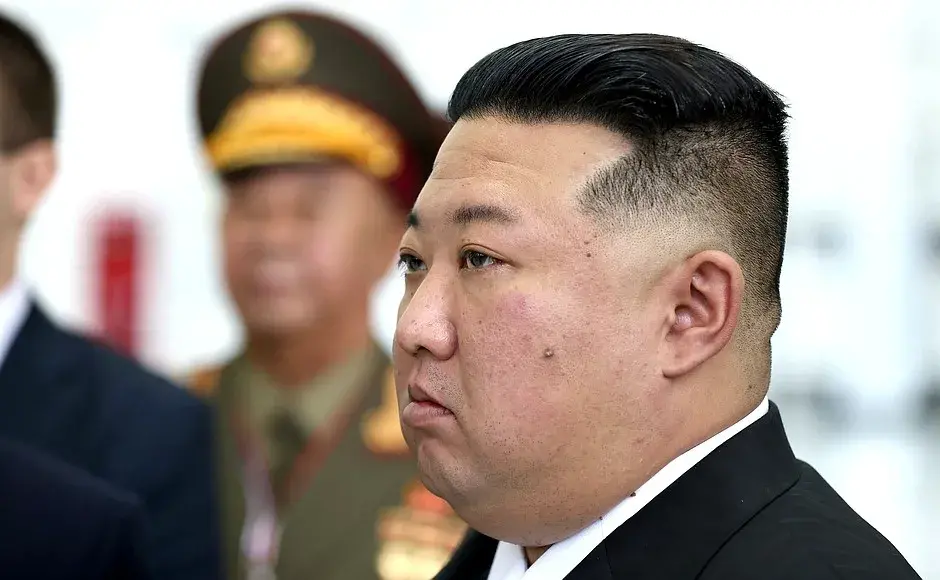The North Korean leader says that South Korea should be identified as the “principal enemy”.

The leader of North Korea, Kim Jong Un, has declared that the unification of the two Koreas is no longer feasible, and that the constitution of his country should be revised to identify South Korea as the “principal enemy”. This was reported by the state-run media outlet KCNA, which also announced that Kim had ordered the closure of three agencies that were responsible for dealing with reunification issues.
The president of South Korea, Yoon Suk Yeol, reacted strongly to Kim’s statement, saying that his country would respond with “multiple times stronger” force to any provocation from the North. He also highlighted the “overwhelming response capabilities” of the South Korean military, in a speech to his cabinet on Tuesday.
The Korean War, which lasted from 1950 to 1953, left the two Koreas divided and without a peace treaty, meaning that they are technically still at war. In a speech to the Supreme People’s Assembly, the highest legislative body in North Korea, Kim said that the constitution of his country should be changed to teach North Koreans that South Korea is a “primary foe and invariable principal enemy”. He also said that the constitution should address the issue of “occupying”, “recapturing” and “incorporating” the South into the North’s territory, in case of a war on the Korean peninsula.
Kim, who succeeded his father, Kim Jong-il, as the leader of North Korea in 2011, said that the North “did not want war, but we also have no intention of avoiding it”, according to KCNA. He also said that he was adopting a “new stand” on the relations between the two Koreas, which involved dismantling all the organisations that were tasked with reunification.
Dr John Nilsson-Wright, the head of the Japan and Koreas Programme at the Centre for Geopolitics of Cambridge University, said that Kim’s remarks were “unprecedented”, and that it was “highly unusual” for a North Korean leader to abandon the policy of unification.
He told the BBC that “it’s not unusual for relations between the North and South to cool, but this has taken the relationship in a different direction”. He also said that Kim’s anti-Western stance can be traced back to the 2019 summit with the former US President Donald Trump in Vietnam, which failed to reach an agreement. “This has been an acute disappointment and loss of face for Kim”, Dr Nilsson-Wright said.
Kim’s comments came amid a significant deterioration of the relations on the Korean Peninsula in recent months. In November, North Korea completely suspended a five-year military agreement with the South that was aimed at reducing military tensions. It vowed to withdraw all the measures “taken to prevent military conflict in all spheres including ground, sea and air”, and said that it would deploy more troops to the border area. The South had partially suspended the agreement days before, after Kim claimed to have successfully launched a spy satellite into orbit.
The North has also increased its rhetoric and actions against the South since then. At the end of the year policy meetings, Kim said that he needed to “newly formulate” the North’s position on the inter-Korean relations and the reunification policy, and that the stated goal was to “make a decisive policy change” related to “the enemy”. He also threatened to launch a nuclear attack on the South, and called for a boost of his country’s military arsenal. The North has also fired missiles in recent weeks, as well as conducted live-fire exercises near the South Korean territory.
A report published last week by 38 North, a US-based organisation that focuses on North Korea, said that the situation on the Korean Peninsula was “more dangerous than it has ever been” since the start of the Korean War in 1950. The report was written by Robert Carlin, a former State Department official, and Siegfried S Hecker, a nuclear scientist.







